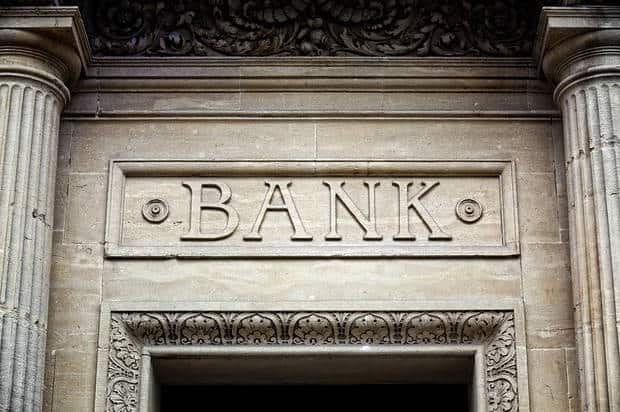More and more people are moving portions of their assets offshore. Perhaps you’ve decided it’s a smart financial move for you as well. Now your search is on for the ideal bank in the perfect location.
To narrow the search and improve the odds of settling on the right institution, carefully consider each of the following factors. It won’t be long until you find something that serves you well now and in the future.
1. Identify Your “Whys” for Moving Assets Offshore
What do you hope to accomplish by opening an offshore account and growing your balances over time? Be as specific as possible. The reason for looking at this aspect so closely is that banks in certain nations may be a better fit based on what you eventually intend to do with the money.
For example, if you want to house assets offshore for use during your retirement years, it may be ideal to have them in the same county where you plan to retire. It can make accessing the funds easier or simplify investments like purchasing real estate that eventually becomes your home after leaving the workforce.
2. Determine What Offshore Accounts Align with Your “Whys”
Now that you’ve specifically identified why you want offshore accounts, it should be easier to determine the type of offshore accounts that align with your intended purposes. It could be that a time deposit account is ideal to house some of those offshore funds. Perhaps an emergency fund to use while traveling would be best placed in a checking account.
No rule says you can’t open more than one type of account. It might be best to have more than one type of offshore account, especially if the money will serve more than one purpose. Remember that opting to place the accounts with one offshore bank will make accessing and transferring funds simpler if the need arises.
3. Governmental Regulations That Apply to Bank Operations
While you may be accustomed to uniformity in banking laws at home, don’t expect that to be true in every other part of the world. Some countries do share common banking traits; however, now is not the time to make assumptions about government regulations and their impact on banking laws in specific countries.
As you look around, it will be evident that some nations have banking laws that are more agreeable for offshore clients. Focus on these nations and learn more about your banking rights, your ability to grow balances, and what it would take to withdraw funds if the need arose. That information will help you identify specific countries that might be ideal locations for your offshore accounts.
4. Political and Economic Stability
Experience the Insider community that takes your international lifestyle to the next level. Download your FREE guide
"18 Steps to Implementing Your Plan B" instantly!
When looking at various countries to diversify your financial portfolio, political and economic stability should be at the top of your list. Spend some time looking into the history of any country that you think might be a good home for your offshore accounts. The goal is to determine if the government tends to remain stable during most political shifts.
The same is true for the economy. How did it hold up when worldwide events began to impact life in that nation? A country that was able to weather difficult times with relative ease is likely one that would be a safe place for your offshore efforts.
5. Interest Rate Earnings
One of the reasons people opt for offshore banking is the competitive interest rates. These rates help grow balances faster and provide more financial security over time. As with other aspects of the country, understand that interest rates in all nations vary. Some areas won’t offer as much return as what you could accrue with a domestic bank account.
Remember that banks in some offshore locations base interest rates on the balances in the accounts. There will be minimum balances that you must maintain to earn anything. You may find that banks in some countries offer higher interest rates once the account balances exceed certain levels. If you plan on adding more money to those accounts each year, a bank with this graduating interest rate schedule would be a good choice.
6. Account Fee Schedule
While what you earn is important, don’t forget what those offshore accounts might cost you. Depending on the nation in question, there may be monthly account fees that go along with charges when you move money from one account to another. Investigate each offshore bank for their account fee schedule before establishing any accounts.
Your goal is to understand an estimated net gain you will enjoy from year to year. If the account and related fees are relatively low and the interest rate is favorable, you will likely see overall gains each annual period. If the fees offset most of what you gain in interest income, that bank is not the best place for your assets.
7. Remote Banking Access
Given how widespread remote banking is today, it’s understandable people may assume this is something every offshore bank provides, regardless of location. However, there are some countries where this type of service is not available to offshore customers. Unless you like the idea of banking by mail or visiting the country a few times each year, those locations are not for you.
Look closely at locations and institutions that make it easy to manage your accounts online. Ideally, this would include checking the balances on all your accounts using the same interface, along with the ability to transfer funds between accounts with little to no delay.
8. Secured Account Information
Account security is a must no matter what location you choose for your international banking. Your personal access must be secure, and there should also be provisions to prevent data breaches and access by unauthorized parties to your funds or account details.
You’ll find that banks in certain parts of the world place great emphasis on security. Bank representatives will be happy to outline the security measures taken to keep your assets safe.
Offshore Banking with Confidence
Remember that opening offshore accounts is more involved than opening domestic ones. Know what requirements are in place, the protections you will have as a result, and the kind of return you can expect in the years to come.
Invest the time and effort now to find the perfect offshore location and offshore bank for your money. This will allow you to bank offshore with confidence and be well on your way to greater wealth in less time than you anticipated.
About The Author

Luigi Wewege is the President of Caye International Bank, headquartered in Belize, Central America. Outside of the bank, he serves as an Instructor at the FinTech School in California, which provides online training courses on the latest technological and innovation developments within the Financial Services industry. Luigi is also the published author of The Digital Banking Revolution, now in its third edition.
Like Our Articles?
Then make sure to check out our Bookstore... we have titles packed full of premium offshore intel. Instant Download - Print off for your private library before the government demands we take these down!







